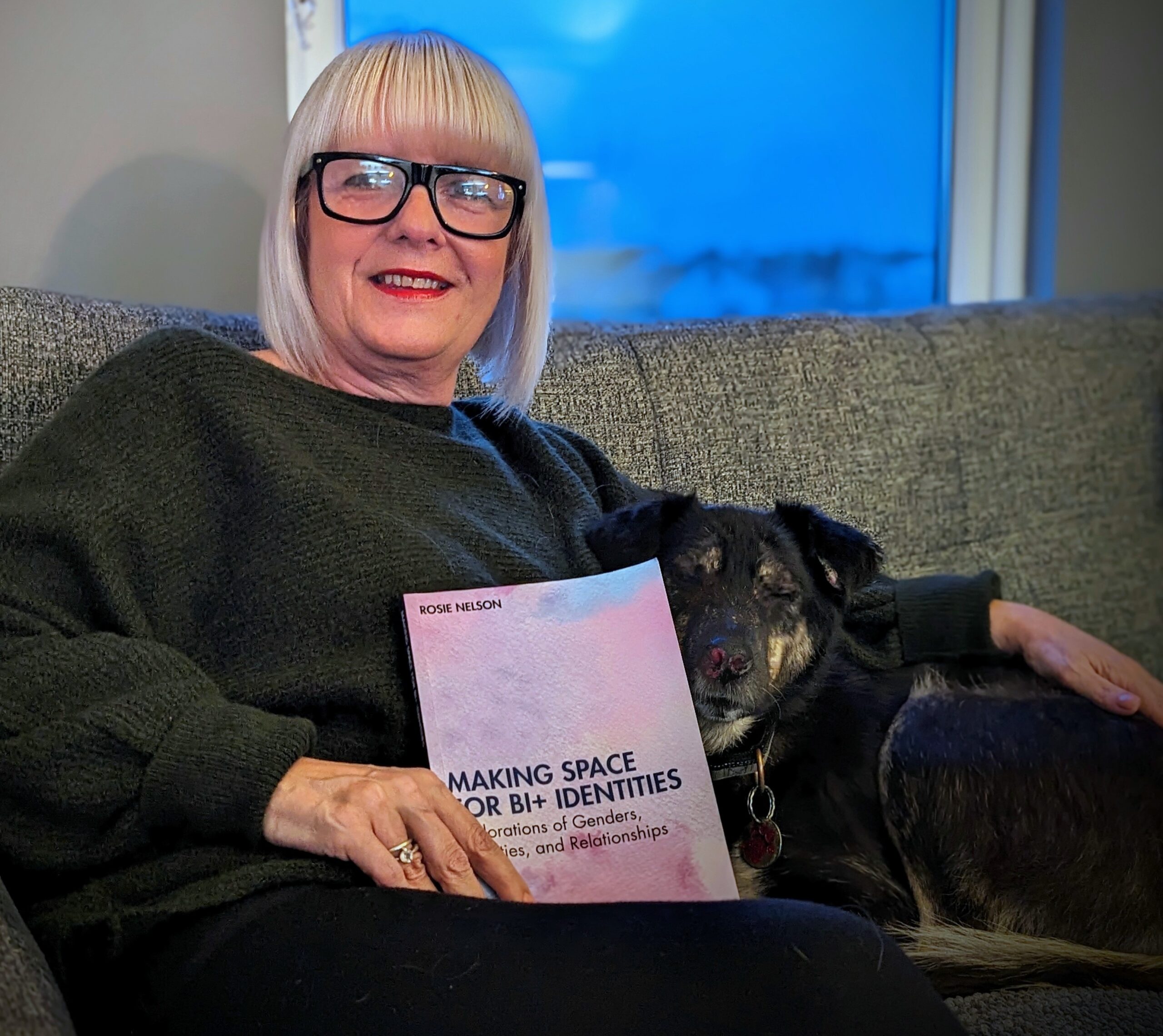Reviewed by Michelle Davies
In a world that is gradually progressing toward greater acceptance of LGBTQ+ identities, it’s vital to recognize the diversity within the community itself. Rosie Nelson’s book, Making Space for Bi+ Identities: Explorations of Genders, Identities, and Relationships, takes a significant step toward achieving this by providing a comprehensive exploration of bi+ individuals and their experiences. It is a valuable addition to the growing body of literature that seeks to deconstruct stereotypes and misconceptions about bisexuality and related identities.
Nelson’s work does not just appeal to academics or those within the LGBTQ+ community. It offers something for everyone, whether you identify as bi+ or are an ally seeking to better understand the challenges faced by your bi+ friends, family members, or colleagues. As someone who has navigated the path of living as a bisexual/pansexual woman in the British context, this book speaks to me on a deeply personal level. It not only validates my own experiences but also shines a light on the often-neglected intricacies of my identity that have been erased or misunderstood for far too long.
A major theme throughout the book is the prevalence of biphobia. While society has made considerable progress in recognizing and addressing homophobia and transphobia, biphobia still lingers in the shadows, often unrecognized and unchallenged. Nelson’s work confronts these prejudices head-on and calls for more accurate and positive representations of bi+ people.
Making Space for Bi+ Identities addresses stereotypes in mainstream media and showcases the unique experiences of various segments within the bi+ community, such as bi men, people of color, gender diverse, and transgender individuals, whose experiences are often marginalized even within the LGBTQ+ community itself. These intersectional experiences are often unheard and unseen but are crucial to understanding the full spectrum of bi+ identities.
Nelson delves into various facets of the bi+ experience. One aspect that particularly stands out is the author’s exploration of the complexities of relationships within the bi+ spectrum. Romantic and sexual lives are often oversimplified in mainstream discussions, but Nelson’s work acknowledges the richness of our community and the unique challenges faced by bi+ people in their relationships.
One often-overlooked aspect of the bi+ experience is how individuals navigate flirting and sexual expression. The book explores this topic, shedding light on how societal expectations and stereotypes can influence these interactions. It calls for more respectful and open-minded attitudes within our societies, encouraging a more inclusive and accepting environment for bi+ people to express themselves authentically.
What sets Making Space for Bi+ Identities apart from other works on the subject is its strong advocacy for specific inclusion measures tailored to the bi+ community. It argues that recognizing the unique experiences and challenges faced by bi+ individuals is a crucial step toward a more inclusive and equitable society.
This is a perspective that speaks directly to my own experiences. It can be disheartening to feel lumped together with other sexual orientations when your own experience is uniquely distinct. This book calls for a more nuanced approach, one that acknowledges the particular needs and challenges of the bi+ community.
Making Space for Bi+ Identities is an indispensable resource not only for the LGBTQ+ community but also for a wide range of professionals and researchers. It offers insights that can benefit students, policymakers, and healthcare professionals, helping them understand the specific needs of the bi+ community.
Rosie Nelson’s work is a testament to the importance of recognizing and embracing the diversity within the LGBTQ+ community, and it provides a compelling voice for bi+ individuals and their allies. Whether you are exploring your own bi+ identity, seeking to support someone within the community, or just looking to better understand the experiences of those around you, Making Space for Bi+ Identities is a must-read. It shines a light on the path to a more inclusive and equitable world for everyone.
Michelle Davies lives in the U.K. and is a queer leader and a Trustee for LGBT+ affirmative housing for older people.

